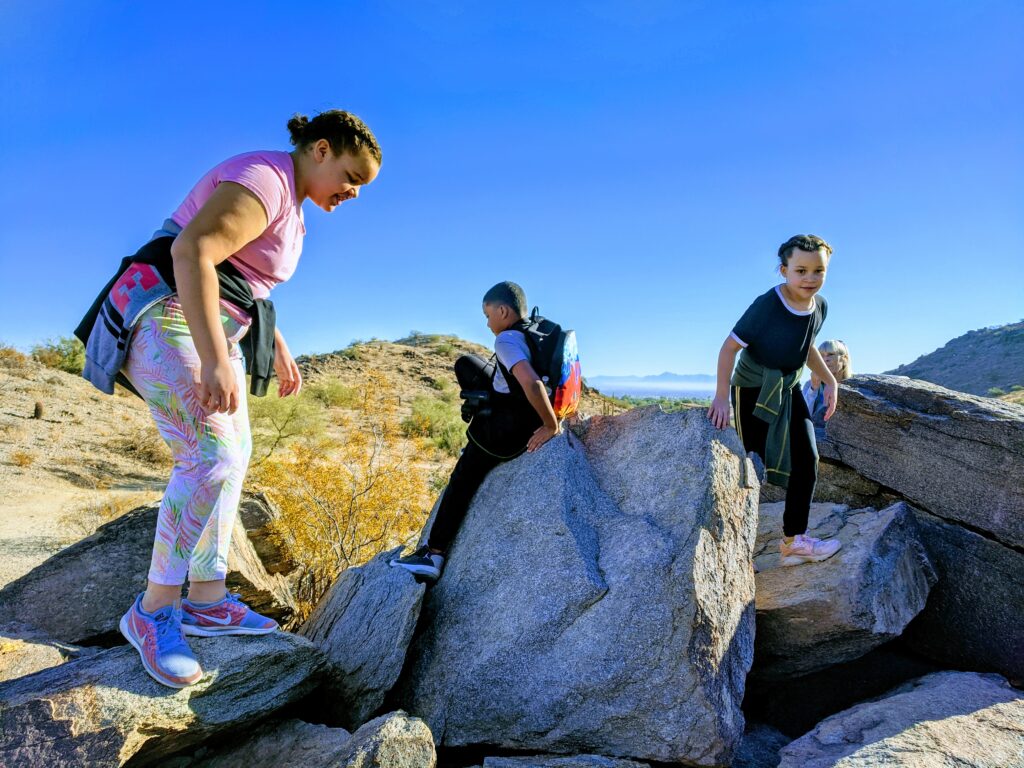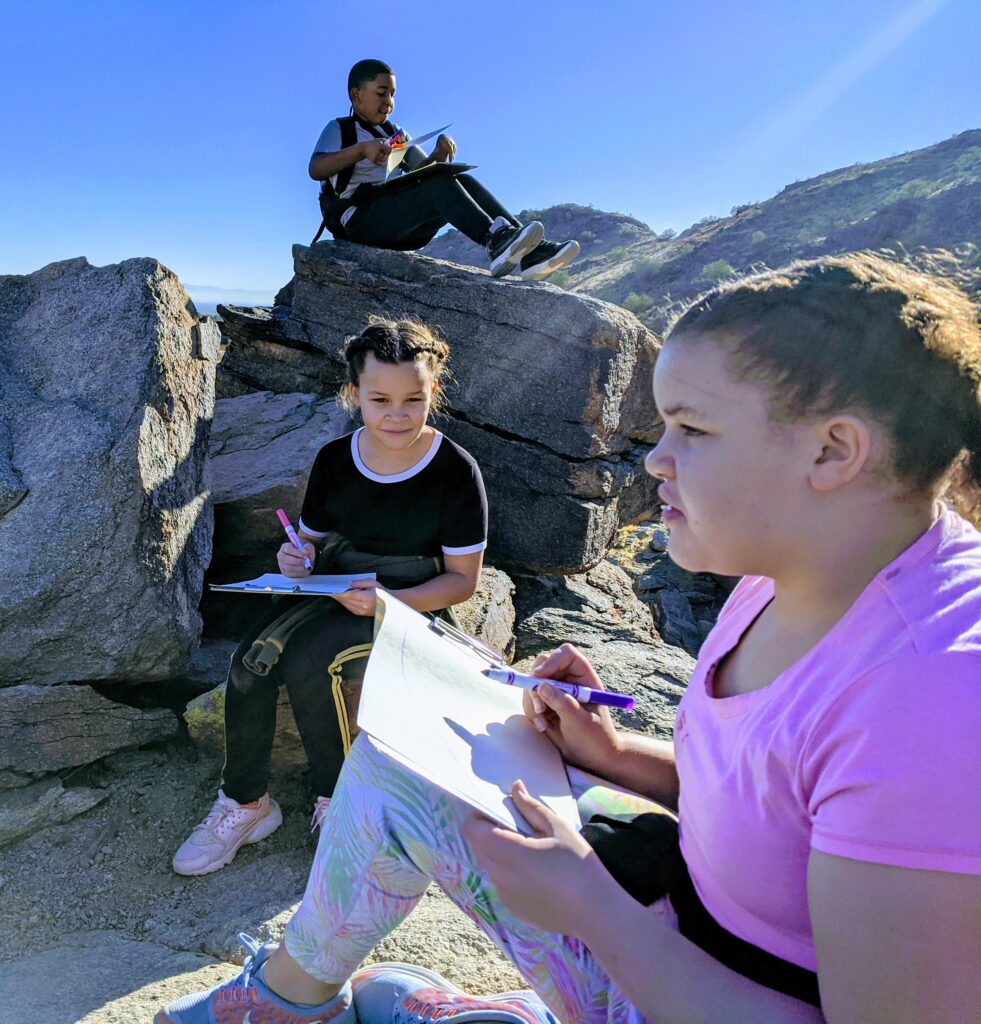




Despite the sublime creativity and energy displayed by our parents and teachers, the rigors of online learning are taking their toll on everyone. If you or the students in your life are ready to ditch the digital noise, consider the benefits of outdoor classrooms. To discover why nature provides the perfect learning center, check out my top 5 reasons outdoor classrooms rock.
1. Lower Risk Factors for Covid-19 Transmission
Natural sunlight and circulating fresh air aren’t just good for your soul; researchers recommend them to help minimize the potential spread of Covid-19. While in traditional classrooms we can lower the risk of transmission with masks and personal hygiene, outdoor classrooms allow us to further mitigate the risk with plenty of natural ventilation and open space for social distancing. University of Colorado aerosol expert Jose-Luis Jimenez offered this advice in an August 2020 Washington Post article, “Outdoors, distanced and with well-fitted masks is the only thing close to a silver bullet.”
2. Inspiration for Natural Curiosity
Constructive learning is undoubtedly essential; it can also be predictable for our dynamically intelligent children. Author and naturalist John Muir said “When we try to pick out anything by itself, we find it hitched to everything else in the Universe.” In this way, experiencing the interconnectedness of nature makes a child’s curiosity go viral. In outdoor classrooms children can let loose their natural desire to know and use it to see deeply.
3. Improved Mental and Physical Health
Stress Reduction: While there is plenty of research to demonstrate that spending time in nature reduces stress, most of us have done enough of our own research to know how soothing nature can be. Essential Vitamins: A less familiar benefit of outdoor classrooms is Vitamin D. Essential to bone strength and fighting disease, it is naturally present in very few foods. Thankfully, we have an abundant resource in sunlight. Exercise: Not only does the exercise performed in outdoor classrooms build strength and reduce the risk of disease, there are also mental benefits. Physical activity gives children the opportunity to establish self-esteem, build confidence, and learn to manage anxiety and depression.
4. Positive Experiences with Physical Activity
There are plenty of important recommendations about the right amount of time and appropriate type of physical activity for children, but these are not the most important factors in building habits that will last a life time. It is far more essential to create positive experiences with exercise and activity early in life. These experiences will help children build healthy habits that will likely carry into adulthood.
5. Deepens Your Respect for Our Planet
Reconnecting with nature is key for the health of the planet. Findings published in the Journal of Environmental Psychology demonstrated that “Those who make weekly nature visits, or feel connected to nature, are also more likely to behave in ways which promote environmental health, such as recycling and conservation activities.”
Disconnect for Your Dose of Science & Sunshine
If the research isn’t convincing enough, join me for Science and Sunshine to do some field work for yourself.
